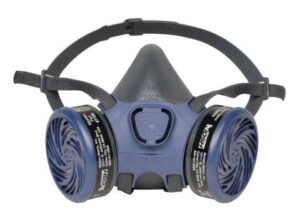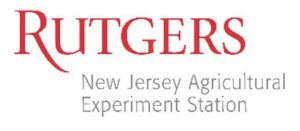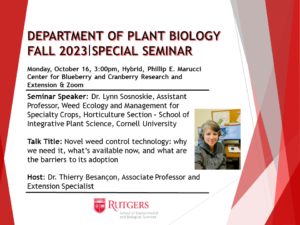The fourth edition of the Eastern Viticulture and Enology Forum (EVEF) webinar series is a collaborative effort between the Penn State Extension Grape and Wine Team and the land grant institutions: Cornell University, Rutgers University, Colorado State University, University of Georgia, Iowa State University, University of Maryland, and Ohio State University. Along with webinar presenters, several viticulture and enology Extension specialists will coordinate and serve as panelists throughout the EVEF series. The webinars are intended for vineyard owners, winery owners, vineyard managers, and winemakers. [Read more…]
Fruit Crops Edition - Wine Grape Section
Seasonal updates on diseases, insects, weeds impacting small fruit (blueberry, cranberry, and wine grape). Fruit Pest Alerts are also available via this category feed.
Subscription is through the general Fruit feed available via EMAIL and RSS.
Need Fit Testing for Your Respirator? Workshop on February 8, 2024
WORKSHOP: WPS RESPIRATORY PROTECTOIN TRAINING, FIT TESTING & RECORD KEEPING
Organizer and Host: PATRICIA HASTINGS Email: hastings@njaes.rutgers.edu
Thursday, February 8, 2024 at 9:00 AM – 1:00 PM (PRE-REGISTRATION REQUIRED-SPACE LIMITED)
LIMITED)
As part of the 2024 New Jersey Agricultural Convention and Trade Show, Rutgers Cooperative Extension is hosting educational sessions and workshops on Tuesday, February 6 through Thursday, February 8 at Harrah’s in Atlantic City. On Thursday morning pesticide applicators have a tremendous opportunity to be trained in respirator safety and fit testing. This workshop requires a separate registration (see instructions below to register) along with registration with VGANJ for the convention and trade show (available online or in person at the registration desk in the trade show area). For total list of educational events at the convention click here for Rutgers Educational Sessions. For more information about registering for the convention scroll to the bottom of the page on the Vegetable Growers Association of NJ’s Website.
Workshop Description: Revised WPS requires that agricultural employers provide all handlers (including family members) using a pesticide which requires respiratory protection with:
1) medical evaluation
2) fit testing of all tight-fitting respirators and
3) training per the requirements of 40 CFR 170.507 (b)(10).
This workshop aims to build the capacity of NJ agricultural establishments to protect their pesticide handlers from respiratory hazards. At this workshop, growers/applicators/their employees will receive class instruction and hands-on training in how to correctly select respiratory protection using the pesticide label statements of products used on their farm, train, and fit test others; and document the results to meet the requirements of the Revised WPS in NJ. Participants will be trained in pairs in how to properly conduct a qualitative fit test so that they can perform fit tests on the farm for as many masks and applicators as needed on their own. In rare cases, pesticide labels require respirators that legally require quantitative fit testing. Quantitative fit testing will be performed for those participants that need it. Training in the use of quantitative fit testing will not be provided to participants.
Workshop Pre-Requisites:
• Registration is given priority to growers/applicators/and their employees needing to expand capacity in respirator training, fit testing, and recordkeeping. Limited to the first 30 participants registering.
• Prior to fit testing or using a respirator, OSHA requires that the respirator user be medically evaluated. Each applicant must submit with their registration form a fully completed medical clearance by a physician or other licensed health care provider per OSHA 29 CFR 1910.1910.134(e)(6)9i.
• ALL attendees must pre-register by completing the 4-part registration form (including Part 4). Use the QR Code (right) to register or go to https://go.rutgers.edu/pesticideworkshop
Part 1: Participant Information
Part 2: List of Pesticides Used Which the Pesticide Label Requires Respiratory Protection
Part 3: Fit Testing Pre-requisites
Part 4: Submitting Your Respirator Workshop Pre-Registration Form
Day of the Workshop:
1) participants must be clean-shaven; use no lotions, aftershave, or makeup; or wear jewelry that interferes with the respirator sealing surface; certain facial hair such as mustaches are acceptable if they do not interfere with the inhalation or exhalation valve function.
2) Must bring respirator(s) they wish to be fit tested with fitted with N, R, or P filters; other makes models, and sizes of respirators will be available if fit cannot be achieved. Ordering information will be provided.
3) Each participant will receive a Workshop Certificate plus a completed “Fit Test Record” and “Respirator Training Record” form and wallet card.
PRESENTERS:
Respiratory Protection for Pesticides, Patricia D. Hastings, Rutgers Pesticide Safety Education Coordinator
Medical Evaluation and Fit Testing, Robin Tutor-Marcom, PhD, Director, NC AgroMedicine Institute
NJDEP PESTICIDE CREDITS FOR ATTENDEES: CORE-8 CREDITS
Webinar – Vineyard and Winery Financial Management
Please join us at the webinar on Vineyard and Winery Financial Management – II. This meeting will be in Q&A and discussion format, where your Vineyard and Winery financial Management related questions will be answered by Dr. Adam Kantrovich. Please submit your question to https://rutgers.ca1.qualtrics.com/jfe/form/SV_2mBVPwUhbgDOB6u. If you have already submitted your question previously, then no need to submit again (8 questions so far). You can also email your question to gohil@njaes.rutgers.edu. Questions will be answered in the order they were received. [Read more…]
2024 New Jersey Agricultural Convention and Trade Show


The 2024 Annual New Jersey Agricultural Convention and Trade Show will be held Tuesday to Thursday, February 6-8 at Harrah’s Resort and Waterfront Conference Center 777 Harrah’s Blvd. in Atlantic City, New Jersey. The convention is hosted in cooperation with the Vegetable Growers Association of NJ, the NJ Department of Agriculture, and Rutgers Cooperative Extension. The VGANJ is working with Rutgers Cooperative Extension and others to bring new offerings to the 2024 convention. Look for new activities in the trade show area, new vendors and traditional vendors from the past, and new participation from the Garden State Wine Growers Association. VGANJ is currently accepting exhibitor booth registrations. To find out more about purchasing a booth space see https://vganj.com/exhibitors.
What is new for 2024? On Tuesday during the mid-day break, participants at the convention can pre-sign up and participate in a free “Lunch and Learn” program where exhibitors will discuss their products and services. Registration is required for the free “Lunch and Learn” program, complimentary lunch will be provided, and space is limited. Attendees are also encouraged to participate in the Tuesday evening social and charity auction to bid on some fantastic items from our supporters. The charity auction will benefit Shriners Hospital and will be held on the trade show floor. Tickets will be available for the Wednesday, February 7th NJ Agricultural Society’s luncheon and everyone at the convention is welcome to sign up and buy tickets to attend. Also, on Wednesday evening, the annual VGANJ/NJDA Awards Dinner and Banquet will be held. This year VGANJ will be presenting their 2024 Vegetable Growers of the Year award to Angelo and Leonard Grasso Farms of Mullica Hill, NJ at the Wednesday dinner banquet. In addition, the NJ Department of Agriculture will be honoring their awardees at the dinner. More to come on these awards. Tickets for scheduled meals and events can be purchased through Nancy Wood at the NJ Department of Agriculture. Email Nancy at Nancy.Wood@ag.nj.gov or see Nancy at registration.
All information for the NJ Agricultural Convention and Trade Show can be found on the VGANJ website at https://vganj.com. To register for attending the educational sessions and trade show, to make hotel reservations, and view the Rutgers educational program, scroll to the bottom of the VGANJ webpage or click the “convention” tab at the top of the page. To help VGANJ meet their room reservations commitment please use the hotel room block for the convention on the VGANJ website through this link https://book.passkey.com/go/SH02VG4 or call the hotel at 888-516-2215 and use group code SH02VG4. Attendees can register for all 3 days by purchasing a VGANJ membership or they can purchase one-day passes on the VGANJ website or when arriving at the convention. Everyone is encouraged to pre-register for the event.
The Rutgers Educational Program at the convention this year has the theme of “Pathways to Grow Farm Viability” and covers a wide range of topics including soil health, hemp production, basic wine grape production, tree fruit establishment, vegetable topics, high tunnel production, nursery and ornamentals, strawberry production, transition to organics, blueberry production, food safety, retail marketing, new agricultural technology, pest problems among many other topics. On Thursday, February 8 a half-day session on Worker Protection Safety Respiratory Protection Training with Fit Testing for Respirators will be hosted and licensed applicators can receive 8 core credits. Additionally, there is an all-day Farm Food Safety workshop on Thursday for a fee that can be paid online. Pre-Registration is required for both Thursday workshops and both have limited seating – so register early. See the Thursday Workshop section of the program for workshop registration links and more information. Or use this link for the Food Safety Workshop registration https://go.rutgers.edu/mhqc3m5u or register for the Respirator Training Workshop at https://go.rutgers.edu/pesticideworkshop.
In addition to the Rutgers educational sessions the NJ State Board of Agriculture will be hosting their annual delegates convention. For more information regarding the NJ State Board of Agriculture Delegates Convention see https://www.nj.gov/agriculture/conventions/. Everyone is welcome to attend the NJ State Board of Agriculture delegates sessions to learn more about agricultural issues. The delegates and NJ SBOA meet on Wednesday and Thursday of the convention. Each county board of agriculture, commodity organizations and other groups send delegates to this convention to vote on resolutions important to the agricultural industry. This event is hosted and organized by the NJ Department of Agriculture.
Rutgers Seminar on Novel Weed Control Technology – Oct. 16 at 3 pm
Department of Plant Biology – Fall 2023 Special Seminar

Please, contact Dr. Thierry Besançon if you plan to attend it in-person at the Rutgers P.E. Marucci Center (space limited) or if you want to receive the zoom link for attending the seminar online.
